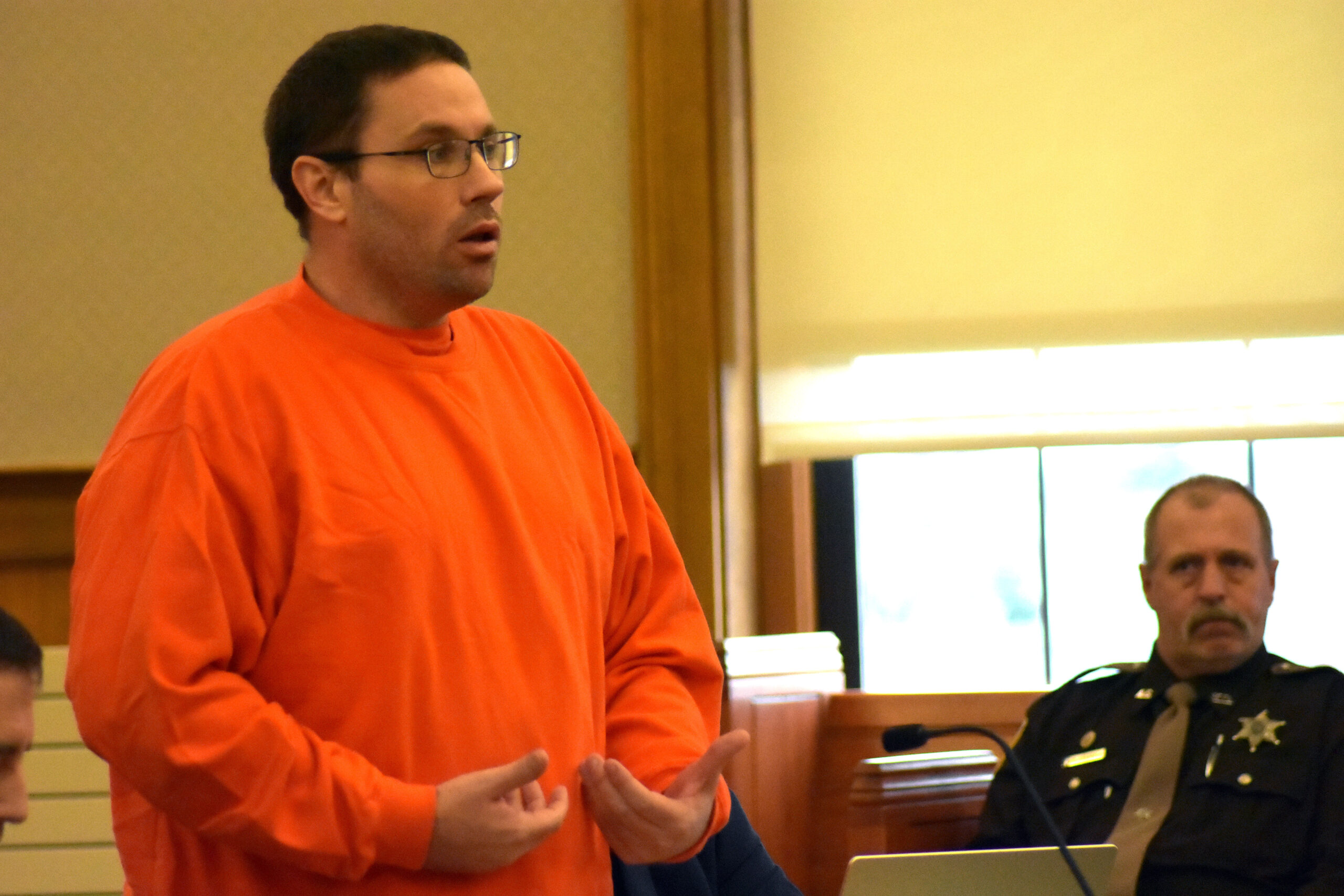
The Maine Supreme Judicial Court justices heard oral arguments on Thursday for a Presque Isle man who is appealing his conviction and life sentence in the 2019 murder of two Castle Hill men.
On appeal, Bobby Nightingale, 42, argued several points related to his trial, including the prosecutor’s message to jurors and the harshness of his sentence compared to others convicted of murder.
Nightingale was convicted of killing Allen Curtis and Roger Ellis in 2022. Curtis and Ellis were fatally shot while sitting in a vehicle at close range, according to the medical examiner.
Last December Superior Court Justice Stephen Nelson sentenced Nightingale to life in prison after a jury of four men and eight women convicted him on two counts of murder, two counts of illegal possession of a firearm and criminal threatening with a dangerous weapon.
In his appeal, Nightingale argues that the trial court erred in denying his motion for a mistrial after the prosecutor referenced the jurors’ significant civic duty to serve as jurors, improperly told the jury that it must find Nightingale guilty, and improperly told the jury that Nightingale’s evidence was not believable.
He also claims that the court erred in giving the jury an instruction on accomplice liability because the evidence did not generate the instruction; that the court abused its discretion by not allowing Nightingale to question a detective regarding the detective’s hearing multiple calls between Nightingale and his attorney while Nightingale was in jail; and in sentencing Nightingale, the court erred by not considering other sentences for similar offenses in the first step of the sentencing analysis.
During oral arguments, Nightingale’s attorney Verne Paradie Jr. said that when the prosecution told the jury in closing arguments that the evidence presented on Nightingale’s behalf was trash, they were basically saying it was a complete lie.
When most people think of prosecutors, they think of people who put bad guys in jail and whose job it is to protect society. They are seen as the good guys. When people think of the defense counsel they think of liars, people who manipulate the truth in order to trick the jury into siding with their client, Paradie said.
“So when the prosecution tells the jury that the defense has concocted a story, that they’ve presented trash evidence unworthy of belief, that reinforces to the jurors what they already believe,” he said.
The justices asked Paradie if the prosecution’s statement was taken in context instead of a snippet, would that change its meaning. He said it would not.
Assistant Attorney General Leeanne Robbin said there was no error in that statement.
Most of the discussion centered on Nightingale’s claim that the court erred in giving the jury instructions on the accomplice liability, meaning that even if Nightingale was an accomplice to the murder he would face the same criminal culpability as the person who committed the murders.
Robbin said that the accomplice instructions were included because there was certainly enough evidence that there could have been more than one person there because there were two guns, two shadows and they couldn’t determine which of the guns were actually the guns that killed the victims.
The fact that there were two guns, that there were two different calibers, the fact that Nightingale was not found with the .45-caliber gun, the fact that there were different shadows, the fact that he said “I was there I seen him when he did it,” could raise a question if he was the actual murderer or was he just at the scene participating by shooting alongside, Robbin said.
The justices are taking Nightingale’s appeal under advisement and will issue a written decision.
Nightingale is currently serving his life sentence in the Maine State Prison.







